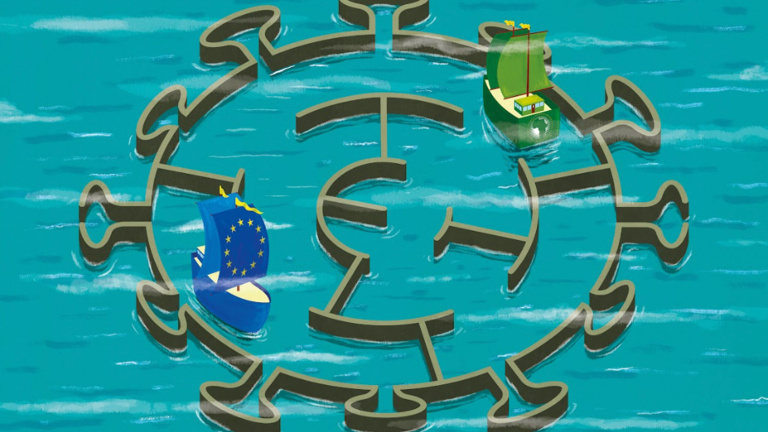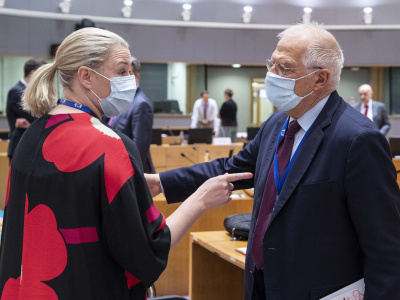
Navigating the new normal: EU-AU partnerships in the post-COVID era - Editorial
In this issue of Great Insights magazine, contributors explore the essence of the partnership between the AU and EU. Their insights push decision makers to reimagine the relationship as they navigate the pandemic-induced ‘new normal’.
The year began with high expectations for the AU-EU partnership. Then COVID-19 hit, spreading first to Europe, then to Africa, drastically shifting priorities and postponing the sixth AU-EU summit to 2021. In this mix, countries jostled around the supply of medical equipment and support to partner countries to tackle the pandemic. African countries, for their part, became more vocal about what they needed to address domestically, the pandemic’s impacts on their populations and economies, especially on the issue of debt waivers and relief. After initially struggling to show a united response to the pandemic domestically, the EU played an active role in trying to develop multilateral responses. COVID-19 equally created space for introspection. African and European countries are reassessing their relationships in light of these changing dynamics.
This issue of Great Insights continues along that introspective path. Contributors explore the essence of the partnership between the AU and EU from their perspectives as policymakers, business leaders, city officials and individual thinkers. Their insights push decision makers to reimagine the relationship as they navigate the pandemic-induced ‘new normal’.
We start by exploring the political relationship between Europe and Africa. The partnership’s undiminished strategic importance is re-emphasised by plans on both continents to promote and redesign AU-EU cooperation moving forward. In a futuristic twist, one contributor presents a glimpse of what AU-EU relations could be like in 2030. Others highlight innovative actions policymakers are now taking to move beyond rhetoric and jointly find solutions for development finance, climate change, migration and the circular economy. At the level of individual businesses, too, the AU-EU relationship brings opportunities. Partnerships in the agricultural sector, for example, could be scaled up to increase Africa’s food security. At the institutional level, contributors explore the changes that may be needed to move the partnership forward. Cooperation in governance will be especially important on the heels of the global pandemic. It will also be important to consolidate the achievements of the AU and EU in peace and security support. The potential for cooperation in research and innovation is another area that needs to be firmly grasped.
From the articles, it is evident that moving the relationship forward and navigating the new normal requires policymakers in the AU and EU to jettison old habits and rhetoric. We need comprehensive approaches to promote the well-being of people on both continents. The challenges ahead, in responding to and rebuilding from COVID-19, mean that the next steps will not always be clear. But we remain optimistic. In the words of an old sailor, ‘Though we cannot control the winds, we can adjust our sails!’
We hope you enjoy reading this issue of Great Insights, and welcome your comments and suggestions.
Guest editors
Amanda Bisong, Policy Officer Migration Programme
Luckystar Miyandazi, Policy Officer African Institutions and Regional Dynamics Programme
Read the full magazine issue






